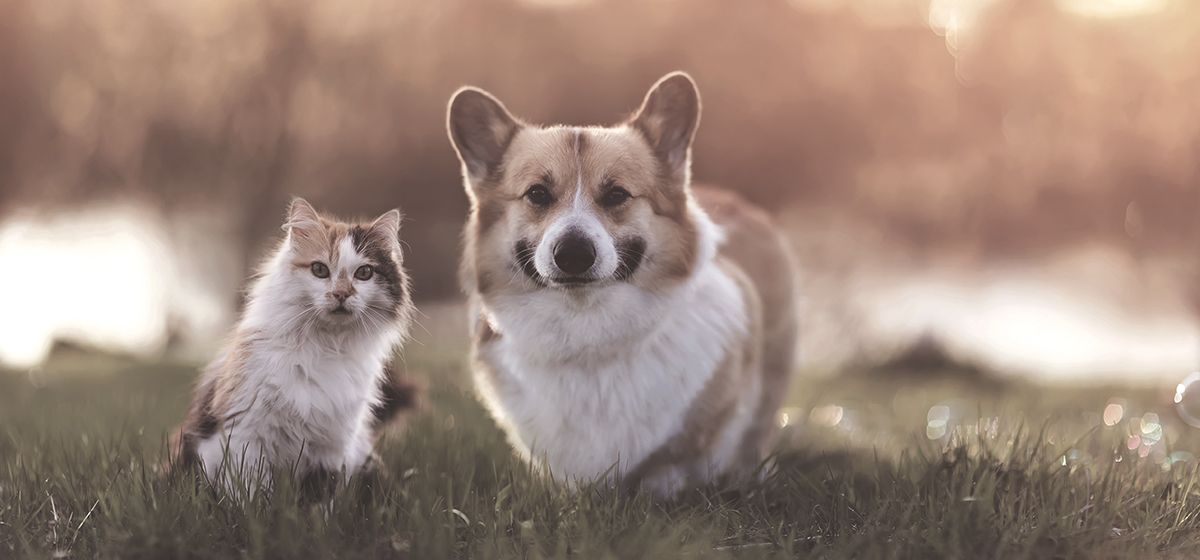Pets bring immeasurable joy and love to many families, but the decision to welcome one (or two) in your home means more than just exciting times.
Taking care of a pet is a significant commitment, both emotionally and financially. Since they can be with us for 15 years or more, the expenses accumulate over time.
We did a little math to find out the average cost* of having a furry friend by your side. Whether you buy, adopt, or take in a stray, there are numbers to think about and budgets to consider.
*Costs are average and based on Singapore Dollar.

One-Time Costs
Microchipping
S$50-S$100
Dogs in Singapore are required to have their microchip registered, and soon for cats too. Microchipping increases the odds of finding them if they ever get lost or stolen. The tiny chip could be your ticket to a happy reunion! This can go from S$50 to S$100.
Register your pet’s microchip, details, and your information with places like AVS, NParks, vet clinics, Petcall, and SPCA. An updated microchip allows for easier contact.
Licence
S$35
In Singapore, having a pet licence is a must for dogs. This way, pets are accounted for and can be traced back to their pet parents. Licence fees differ, but there’s a S$35 one-time fee for neutered dogs, lasting their lifetime.
Spaying and Neutering
S$150 to S$600, not including tests and post-surgery medication
To avoid surprise litters and help reduce animal overpopulation, spaying or neutering is the best way. This also lowers the number of strays on the streets. Getting your pet spayed or neutered can run you around S$350 to S$500, maybe even more, and that depends on how much your furball weighs.
Ongoing Costs
Food
From S$20-S$150
How much you spend on food is largely based on your pet’s size, breed, and what they love to eat. Some dine on wet, raw, or dry food. Premium and quality nutrition may come with a price tag, but the benefits for your pets’ overall health make it worthwhile. Feeding hamsters or bunnies costs less and ranges from $20 to $50 monthly. Just a heads up, that doesn’t cover the fancy treats or snacks for your little buddy.
Grooming
S$50 to S$150
Regular grooming is necessary for your pet’s health. While this can be done at home, sometimes a pro is best for the job. Depending on size, breed, and fur, this can cost between S$50 to S150. Cats are meticulous groomers but they might need a trim every 4-6 weeks, while dogs need grooming more frequently.

Vet Visits
S$40 to S$120
Regular vet check-ups are crucial. During these visits, your vet makes sure everything is in shape and tries to spot sneaky issues early on. The bill for these are usually S$40 to S$120. It can still be more, depending on the health issue you’re dealing with. Don’t forget to save some extra cash for medical emergencies!
Vaccination
From S$50
Keep preventable ailments away with regular vaccinations. The price will vary on what vaccine you will get, but it will mostly be around S$50 or more per visit. Talk to your vet to make sure you’re getting the correct shots for your furry friend.
Deworming, Fleas, and Ticks Prevention
S$20+
Don’t let parasites worm their way into your furry friend or you! Deworming is a preventative care that helps reduce parasites (internal and external). Even before birth, dogs can contract different types of worms. The cost of deworming depends on the clinic, product, and your pet’s weight. But be ready to shell out S$20 or more.
If you bring your cats outdoors, it’s advisable to consider spot-on preventive treatments, such as Revolution®. This can help protect your felines from pesky pests.
Pet Supplies
S$50+
Setting up a cosy space for your pets comes with a price tag too. Beds and toys need changing every few months, especially if your pets are prone to biting and chewing. For pet parents who drive, investing in a protective car seat cover is ideal since most dogs and cats are prone to fur shedding. Plus, it saves your car seat from those unintentional scratches. Win-win.
Emergency Medical Bills
S$150 to S$800
Sadly, our pets getting sick is an unavoidable reality. Medical emergencies can be quite costly, so it’s best to be prepared. On average, emergency exams cost S$150 to S$800. It can even climb up to a higher price, depending on the case and procedure needed. Building an emergency fund allows you to give the best care in case of any unexpected health issue.
Relocation
S$4000+
Relocating pets in Singapore involves careful planning for a smooth transition for your pets. The average cost is around S$4000, permits and airfare included. Factors such as the size of the pet, the destination, and the level of assistance required can affect your final total. Budget for these expenses and research well before making the big move!

The Real Reward
Pets are always a welcome addition to the family. And while they come with their fair share of costs, the joy and companionship they generously give makes it all worth it. The time we spend together, the memories we make with them, is a constant reminder that love is truly beyond any price.


